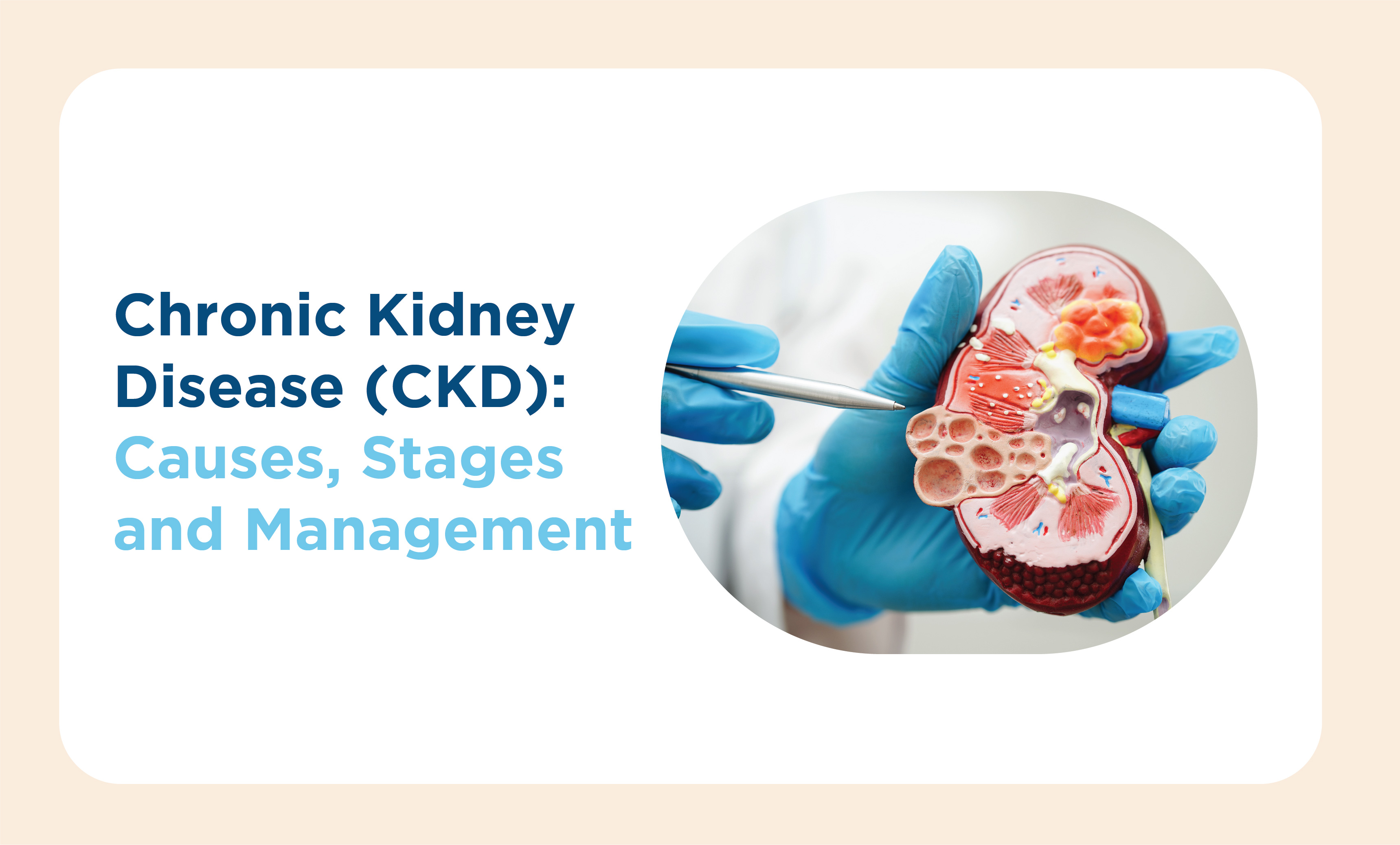
Chronic Kidney Disease (CKD)
Chronic Kidney Disease (CKD) is a progressive condition characterized by the gradual loss of kidney function over time. This condition affects millions worldwide and is a significant public health concern. Understanding its causes, stages, and management is crucial for both prevention and effective treatment.
Causes of Chronic Kidney Disease:
- Diabetes: Uncontrolled high blood sugar levels over time can damage the kidneys' filtering units, leading to CKD.
- Hypertension (High Blood Pressure): Prolonged high blood pressure can strain the kidneys, causing damage to blood vessels and nephrons.
- Glomerulonephritis: Inflammation of the kidney's filtering units (glomeruli) can result in CKD.
- Polycystic Kidney Disease: An inherited disorder where cysts develop within the kidneys, gradually reducing their function.
- Other Factors: Certain medications, kidney infections, urinary tract obstructions, and autoimmune diseases can contribute to CKD.
Stages of Chronic Kidney Disease:
CKD is categorized into five stages based on the glomerular filtration rate (GFR), which measures how efficiently the kidneys filter waste from the blood:
- Stage 1: Kidney damage with normal or high GFR (>90 mL/min).
- Stage 2: Mild reduction in GFR (60-89 mL/min).
- Stage 3: Moderate reduction in GFR (30-59 mL/min).
- Stage 4: Severe reduction in GFR (15-29 mL/min).
- Stage 5: Kidney failure, also known as End-Stage Renal Disease (ESRD), with GFR <15 mL/min or dialysis dependence.
Management of Chronic Kidney Disease:
CKD is categorized into five stages based on the glomerular filtration rate (GFR), which measures how efficiently the kidneys filter waste from the blood:
- Medical Management: Treatment aims to slow the progression of CKD and manage complications. This may involve controlling underlying conditions like diabetes and hypertension, and medications to protect kidney function.
- Lifestyle Changes:Adopting a healthy lifestyle plays a crucial role in managing CKD. This includes following a kidney-friendly diet (low in sodium, phosphorus, and potassium), regular exercise, maintaining a healthy weight, and avoiding smoking and excessive alcohol intake.
- Dialysis and Transplant: In advanced stages (Stage 5), when kidney function is significantly impaired, dialysis (hemodialysis or peritoneal dialysis) or kidney transplantation becomes necessary for survival.
- Monitoring and Follow-Up: Regular check-ups and monitoring of kidney function, blood pressure, and overall health are vital to managing CKD effectively.